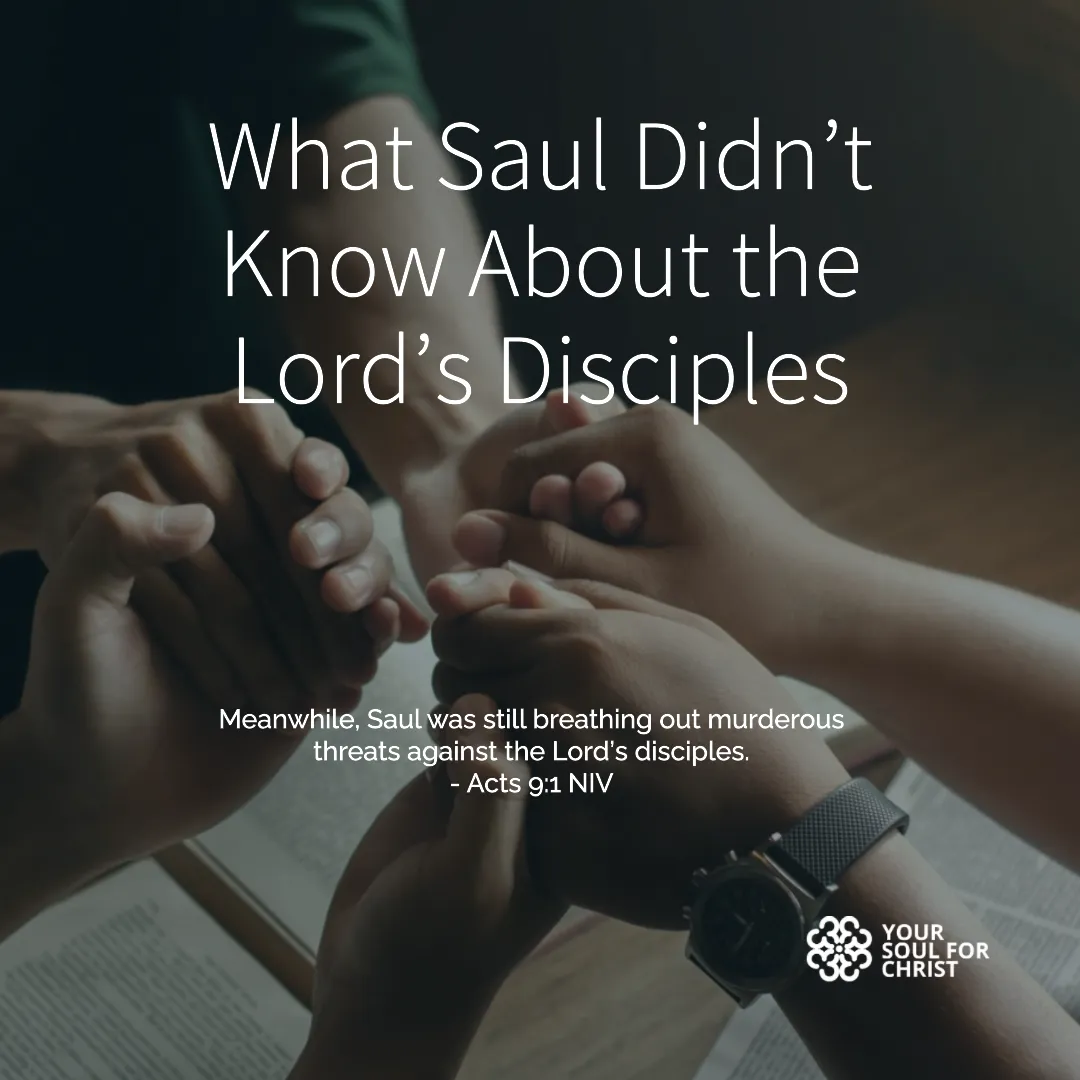Meanwhile, Saul was still breathing out murderous threats against the Lord’s disciples. He went to the high priest and asked him for letters to the synagogues in Damascus, so that if he found any there who belonged to the Way, whether men or women, he might take them as prisoners to Jerusalem.
Acts 9:1-2 NIV
Acts 9:1 opens with a striking statement: “Meanwhile, Saul was still breathing out murderous threats against the Lord’s disciples.” As I meditated on this verse, one phrase stood out with unusual clarity—“the Lord’s disciples.” Though simple, those words carry profound significance.
From Saul’s perspective, he knew exactly who he was pursuing. These were not random individuals; they were followers of Jesus, those who belonged to the Way. He recognised their allegiance, yet what he did not understand was the depth of the Lord’s identification with them. He assumed he was targeting a group of zealous men and women, but Heaven saw it differently.
The Bible is deliberate in its phrasing. It says “the Lord’s disciples.” These men and women belonged to Jesus in a way Saul had not imagined. Their faith was not a private pursuit; they carried the presence and authority of Christ. God had so fully identified with them that to attack them was to attack Him.
Saul’s encounter on his way to Damascus further revealed this truthfully. As Saul journeyed, intending to arrest more disciples, he was interrupted by a blinding light and a voice from heaven. “Saul, Saul, why do you persecute me?” (Acts 9:4). The question was deeply personal. Not, “Why do you persecute my people?” but “Why do you persecute me?”
Confused, Saul asked, “Who are you, Lord?” The answer was astonishing: “I am Jesus, whom you are persecuting.” (v. 5). In persecuting the Church, Saul had unknowingly set himself against the risen Christ. Those disciples he was hunting were not just people—they were vessels of Christ. They carried Him in their lives, their witness, and their obedience.
Scripture tells us that it is God who works in us both to will and to act in order to fulfil His good purpose (Philippians 2:13). So, these disciples were not acting out of their own strength or ambition. The divine life of Jesus was being expressed through them. Their persecution was not because they were doing something wrong, but because they were doing something deeply right.
This revelation brings encouragement to us as believers. When we face trials because of our faith—when we are misunderstood, rejected, or ridiculed for following Jesus—we can rest in this truth: He sees. He knows. And more than that, He identifies with us. We do not suffer alone. Our Saviour takes it personally. “You are mine,” He says.
Therefore, knowing this should strengthen your resolve. You must not allow temporary afflictions to distract you from your eternal calling. Believers are carriers of Christ, called to reflect His light in a world that desperately needs Him. Your life has a purpose that far exceeds comfort or convenience. So, you must stand firm, holding fast to your faith, unwavering in your commitment.
Even when the world cannot recognise Christ in you, and circumstances seem overwhelming, the call remains: to embody Jesus and bring His presence into every place you go. He is not distant or passive. He is with you, in you, and for you.
Living It Out
Take time this week to reflect on how closely Jesus identifies with you. When you experience hardship because of your faith, remember that you are not alone. Christ in you is your strength, your advocate, and your hope. Stand firm in your calling, carry His presence with boldness, and let your life be a living testimony of the One who walks with you—even in the fire.

